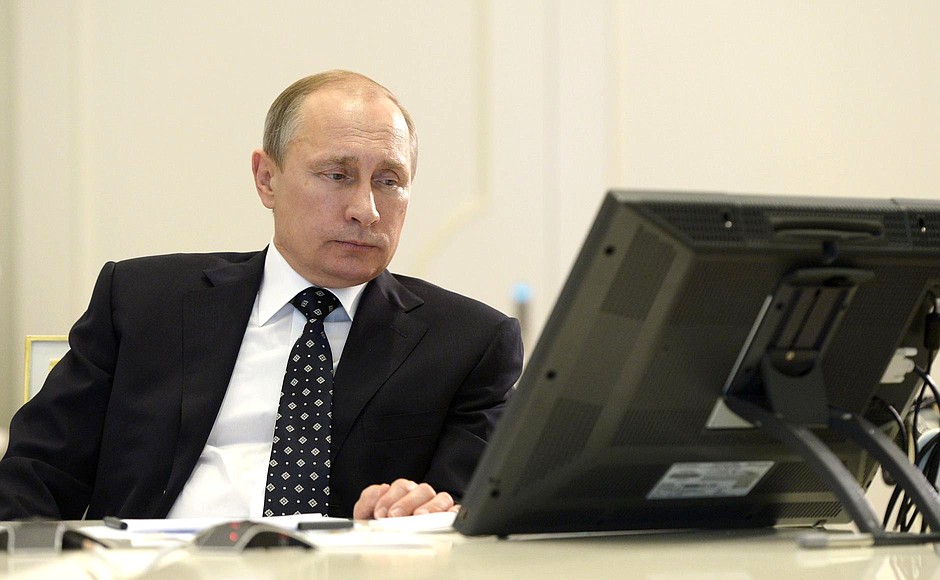
Russia’s Impending Internet Shutdown
Russia is planning to temporarily shut off its internet as part of a cyber-defense test, according to RBK, a Russian news agency. The Duma voted 334-47 in favor of a proposed bill, which aims to secure the Russian internet from foreign influence, after a first reading.
The temporary disconnect is part of a larger initiative to establish a “sovereign” internet, according to Fox News. This means Russia would have the capability to close off its internet from the global network (the World Wide Web) to avoid cyberattacks, potentially from the United States, and continue operating internally. The primary tool Russia would use to accomplish its cyber-sovereignty is a firewall—and comparisons have already been made to China’s Great Firewall, which restricts the flow of information in and out of China’s web.
Russia’s ambitions aren’t far off. The proposed bill behind these ideas is seeking to eventually route “all Russian internet and data through a central point controlled by the state”, according to the Los Angeles Times.
This is a relatively effective way to limit public access to information, but to what degree is this a useful method for preventing cyberattacks?
The proposed control of a Russian “intranet” affords the Russian state the ability to cut its global network connections off at any time, especially when they might be under threat from a foreign cyberattack—a kill switch. Bill Woodcock, the executive director or Packet Clearing House, said that this “kill switch”, as a single tactic, would not be sufficient in preventing cyberattacks. However, he did iterate that it could be combined with other reasonable tactics as part of an effective cybersecurity strategy.
Plus, other countries have established nationwide, state-controlled intranets for their own purposes. Iran has its own network, the National Information Network (NIN), which hosts Iranian websites and can be disconnected from foreign networks as Tehran sees necessary. Iran’s network seems to be less about cybersecurity and more about controlling information, however, given the heavy influence of global internet factors like social media during the Arab Spring.
Another example is North Korea. Its intranet, though as rudimentary as you’d expect it to be, is completely state-controlled.
Whether Russia is looking to implement these plans as part of a cybersecurity effort or an attempt to further restrict the flow of information, the idea of shutting off the internet isn’t as simple as it sounds. Russian experts have said the proposed bill is “too vague and impossible to implement”.
The global entanglement of internet servers is a difficult thing to undo. Because the internet is a (relatively) unrestricted network, severing all foreign server ties is extremely complicated and would likely result in catastrophic failures. However, even if those failures don’t occur, like “banking, hospital, or aviation entities failing to connect—many websites would likely stop working”. This is because most websites rely on several different servers to function, some of which could be across state lines and thus out of Russia’s control.
Internet shutdowns also hurt the economy. A report by GNI says that, for highly-connected countries, “the per-day impact of a complete Internet shutdown would amount to US$23.6 million per 10 million people”—that’s about $330 million a day for Russia.
In order to successfully shut off its internet without inadvertently causing major infrastructure and future network disruptions, Russia would have to reign in all foreign server connections. Russia has made similar moves on a smaller scale, but a shut off of this size, nonetheless a deliberate one, would be remarkably more complicated.
In addition to the technical complications, the Russian government’s expert council says the implementation of the bill would result in a cost of 134 billion rubles per year (about $2 billion). This is well above the estimated 23 billion rubles that have been allocated.
While Russia’s argument that this plan is helpful for Russian cybersecurity isn’t incorrect, it looks like creating a sovereign “Runet” is also focused on limiting the information that comes in and out of Russia’s cyber network, considering the increased level of state control in the matter. Roskomnadzor, Russia’s government censor, would have a significantly easier time “block[ing] channels”, or websites, that have been banned.
Sovereign intranets, as explained, do exist in other countries—however, Russia’s size and advanced infrastructure put more pressure on the internet’s operation. By attempting to corral all server connections and create a sovereign internet with a kill-switch, Russia is endangering its infrastructure and economy, all while incurring a potentially heavy bill.





